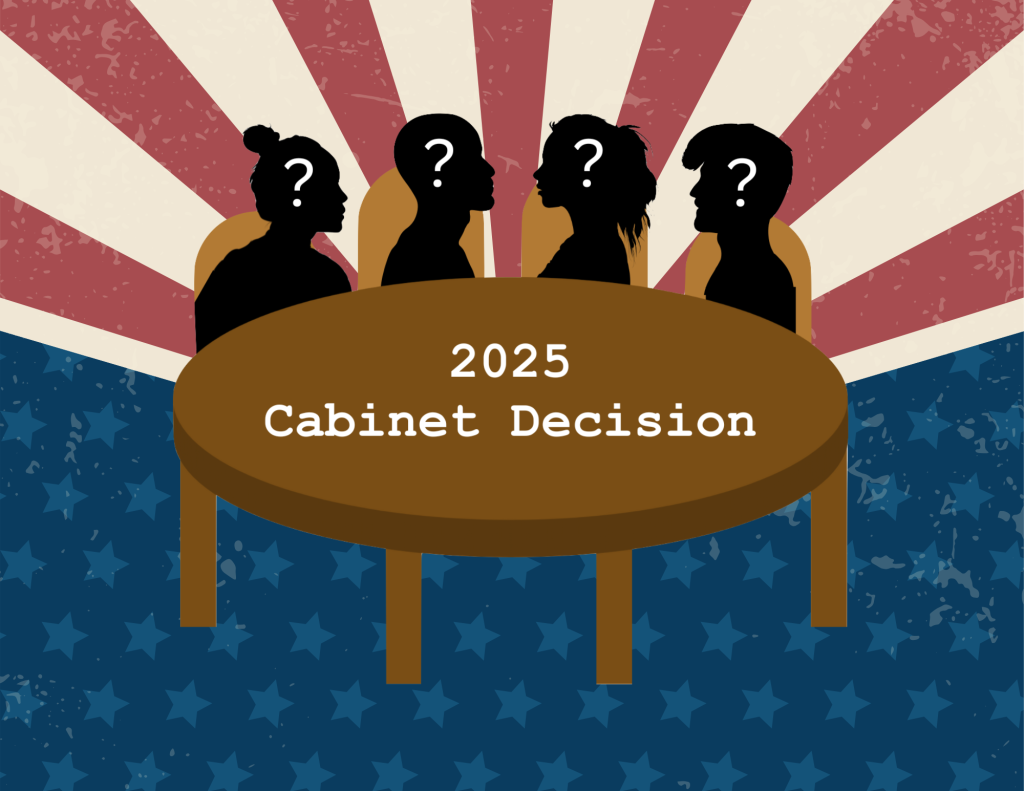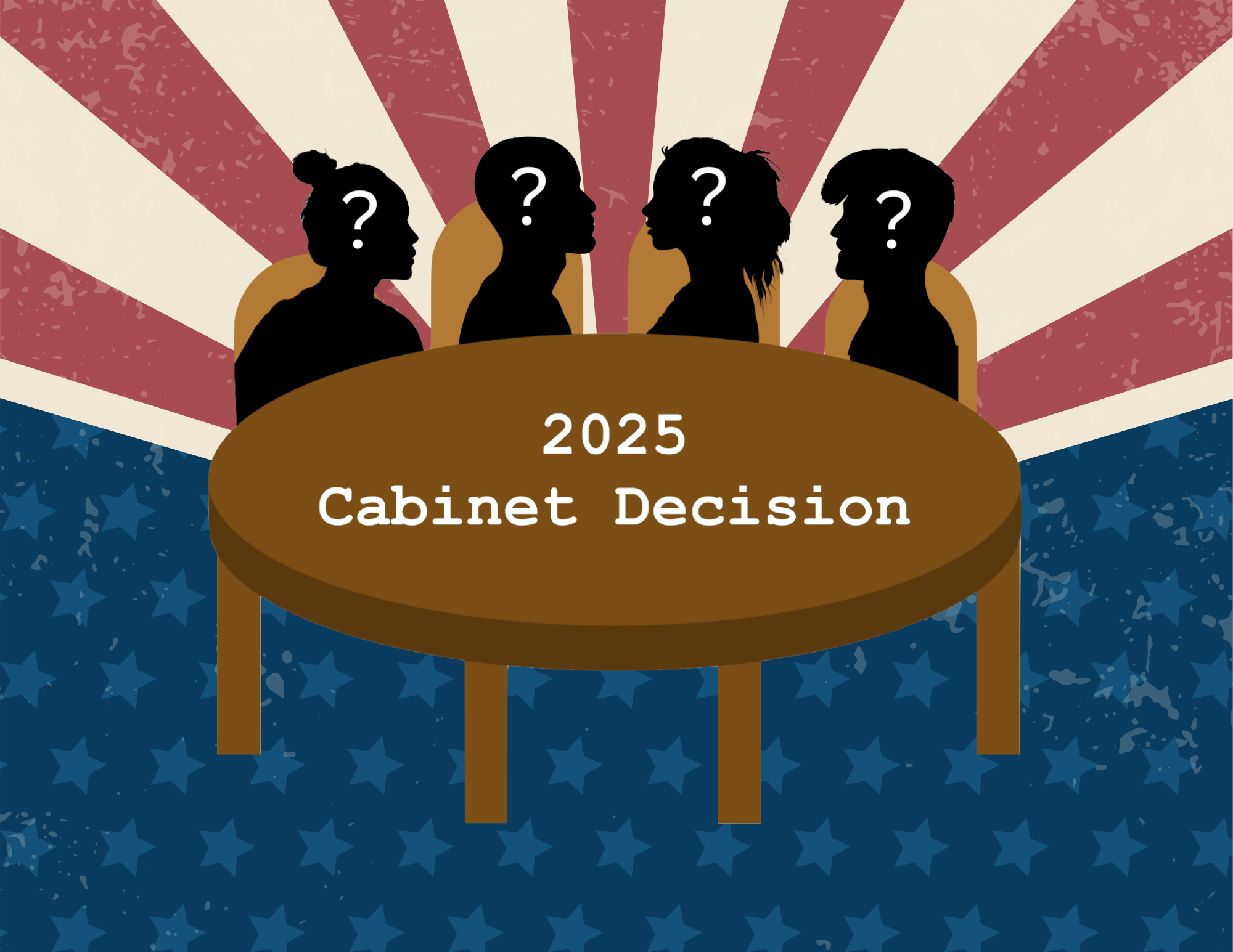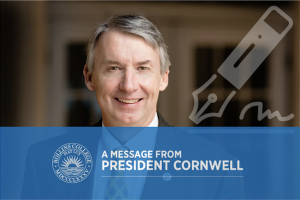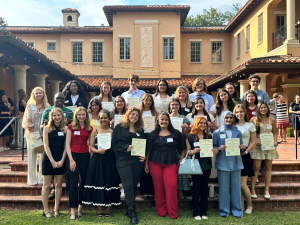
Since Donald Trump was announced the president elect by the Associated Press on November 9, the former, now set to be current, president, has been appointing members of the executive at a rapid pace, with 11 of the 15 cabinet secretaries appointed as of November 22. The cabinet that President Elect Donald Trump selects will be poised to inherit the powers of the United States Executive Branch.
The cabinet, composed of the departmental heads of every executive branch, known as secretaries, is not included in the Constitution of the United States; however, their function and existence are built on centuries of tradition and precedent.
Currently, it is undecided when the Senate confirmation hearings of the cabinets will be, aside from some point this coming January. The confirmation hearings are a customary event where the appointees are brought before the Senate chamber who then vote on whether or not the proposed departmental secretaries will be brought into the executive fold.
The position of secretary is the highest position one can hold in a federal department and is tasked with exacting the president’s will. If the president were to want to move soldiers to the southern border, they would tell the secretary of defense who would then relay that message to the appropriate forces. If the president wants to ground all airplanes, the secretary of transportation relays the order. How the government enacts presidential directives is made, in large part, at the discretion of the cabinet.
The power of the secretary and the ability of the one to wield it have become a central issue on Capitol Hill, with members of Congress on both sides of the aisle calling into question Donald Trump’s choices.
In an interview on CBS’ “Face The Nation”, Democratic representative of Connecticut Jim Higgens said, “The Republican senator who votes to confirm Matt Gaetz, Robert Kennedy, or Tulsi Gabbard will be remembered by history as somebody who completely gave up their responsibility to Donald Trump.”
On the Republican side, Nikki Haley, former United Nations Ambassador under the Trump administration from 2017 to 2018, said on her radio show on Sirius XM, “This is not a place for Russian, Iranian, Syrian, Chinese sympathizers,” in reference to Tulsi Gabbard, the nominee director of National Security and former representative of Hawaii.
With such unpopular picks, even among his own party, why did Donald Trump choose the nominees he did? “His cabinet pick is evidence of extreme loyalty,” said UCF graduate John Martinous III (‘20), a political scientist and history teacher in the Seminole County Public School District. “If someone is qualified, there is a liability, and if they’re not qualified, that’s an asset. Like the attorney general [Pam Bondi], he wants to make sure that person’s loyal.”
It is important to note that the mentioned Attorney General nominee, Pam Bondi, was the 37th Attorney General of Florida as well as Trump’s personal lawyer in his 2020 impeachment trial, the latter creating a potential conflict of interest, hence the claim of loyalty.
“Their political careers are basically over except for Trump,” said Martinious III. “None of them have a political future without Trump. Robert F. Kennedy does not have a future without Trump. Tulsi Gabbard does not have a future without Trump, and what that leads to is extreme loyalty—that they will do anything for Trump to remain in power, to remain in political relevancy. And I think that’s the bet. I think that is more or less the calculation from Trump.”
In the coming weeks, more cabinet members are expected to be nominated to fill the vacant seats of the Secretary of Treasury, Secretary of Labor, Secretary of Housing and Urban Development, and Secretary of Agriculture. The finalized roster of the cabinet of the 47th President of the United States will be officially announced after their respective Senate confirmation hearings this coming January.
If you would like to learn more about the political process in the United States, you can visit the official website of the US government. If you would like to learn more about how you can get involved on campus at Rollins College, you can reach out to the Democracy Project.












Comments are closed.